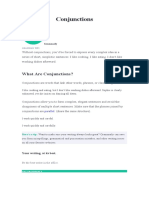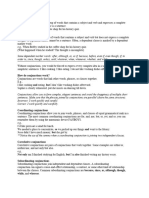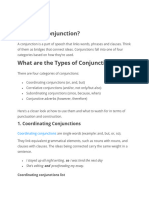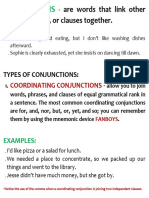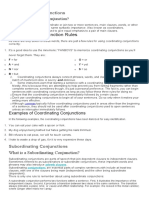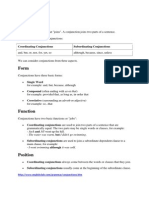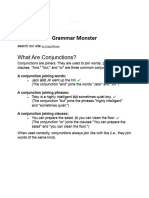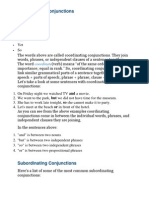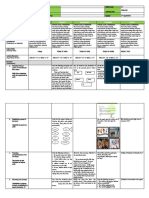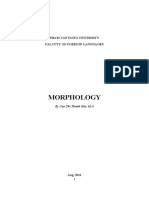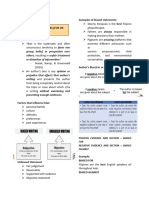0% found this document useful (0 votes)
49 views3 pagesConjunctions Tips
The document discusses different types of conjunctions including coordinating conjunctions, correlative conjunctions, and subordinating conjunctions. Coordinating conjunctions join words, phrases, and clauses of equal rank. Correlative conjunctions work in pairs like either/or. Subordinating conjunctions join independent and dependent clauses and can signal relationships between clauses.
Uploaded by
Rosa GonzálezCopyright
© © All Rights Reserved
We take content rights seriously. If you suspect this is your content, claim it here.
Available Formats
Download as DOCX, PDF, TXT or read online on Scribd
0% found this document useful (0 votes)
49 views3 pagesConjunctions Tips
The document discusses different types of conjunctions including coordinating conjunctions, correlative conjunctions, and subordinating conjunctions. Coordinating conjunctions join words, phrases, and clauses of equal rank. Correlative conjunctions work in pairs like either/or. Subordinating conjunctions join independent and dependent clauses and can signal relationships between clauses.
Uploaded by
Rosa GonzálezCopyright
© © All Rights Reserved
We take content rights seriously. If you suspect this is your content, claim it here.
Available Formats
Download as DOCX, PDF, TXT or read online on Scribd
/ 3


